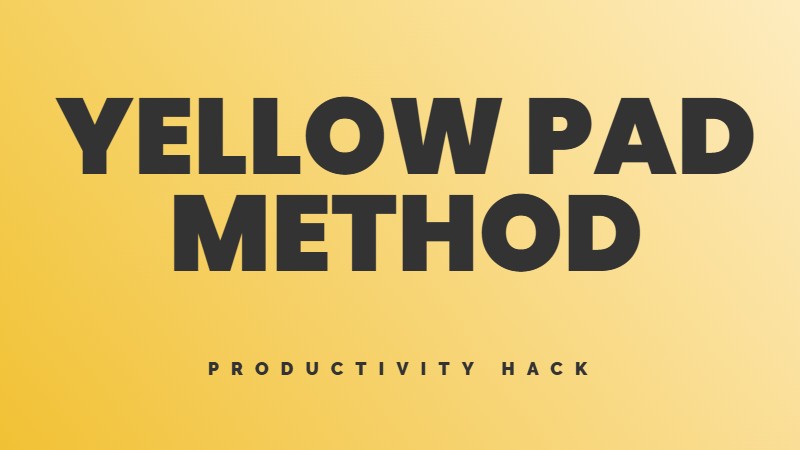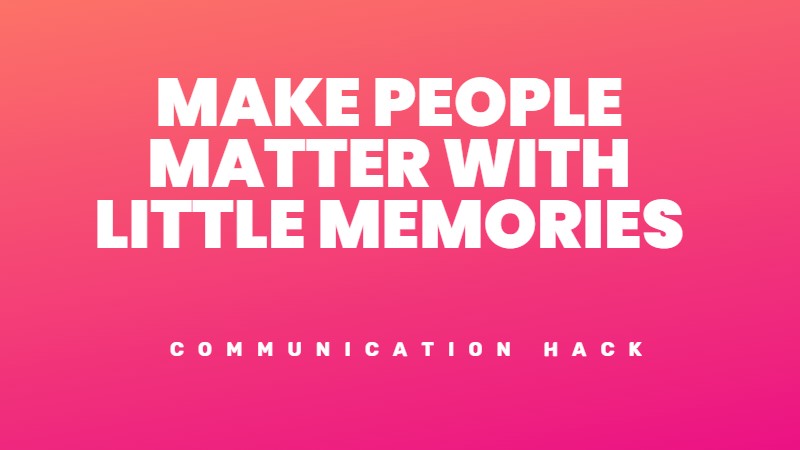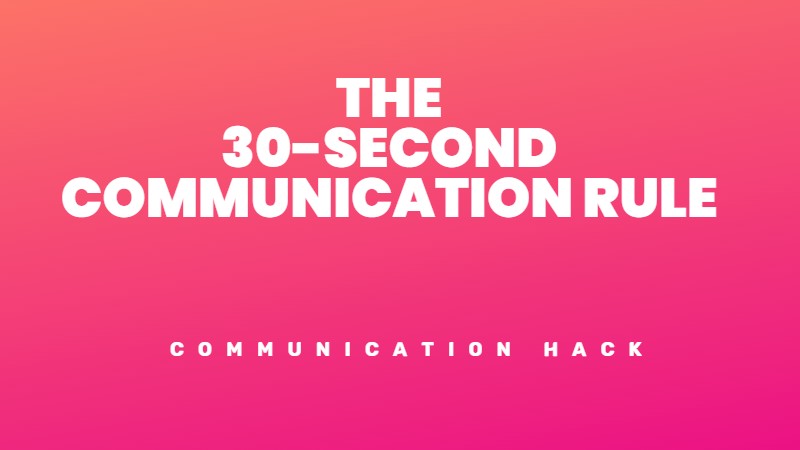The year Helen was in chemo was one of the toughest years of her life. She was going through a lot of pain and discomfort, and it was hard to stay positive. But she found a way to keep track of all the people who helped her along the way. She made a spreadsheet of everyone who called her, visited her, cooked for her, watched TV with her, and even held her hand while needles were driven in. She wrote down everything they did for her, no matter how small.
When Thanksgiving came around that year, Helen decided to write thank-you cards to everyone who had helped her. She wrote notes of appreciation for specific things each person had done. She wrote a couple every day and finished on Valentine’s Day. In total, she sent out 90 notes.
Dozens of people wrote back, emailed, and called Helen to say that her note was the nicest they had ever received. Helen realized that nothing exceeds gratitude – and specifics of what we are grateful for.
Helen started writing a minimum of three gratitudes a day as part of her evening shutdown routine. She bought a nice Moleskine journal and started writing down things for which she was grateful daily. This activity has changed her life, improved her outlook, and given her great peace. It’s a joy for Helen to flip back and read things from two to three years ago and remember certain activities. What better way to end your day than filled with gratitude and happiness?
About gratitude
Do you ever stop to appreciate the goodness in your life and the support you receive from others? Gratitude is a powerful emotion that can positively impact your well-being and relationships.
Gratitude is good for you! It helps your body relax and feel calm. You can also do other things to help your body relax, like humming, telling jokes about yourself, walking slowly, breathing in a square pattern, or hugging people or dogs (preferably big ones).
The days that I keep my gratitude higher than my expectations, I have really good days. Ray Wylie Hubbard, The messenger (song)
Benefits of gratitude
Exploring scientific research on gratitude, we discover its evidence-backed benefits on your well-being and relationships.
Here are four key findings from studies on gratitude:
What is gratitude?
Gratitude is a positive emotion that arises from acknowledging the goodness in life and recognizing that others have helped achieve that goodness. It involves feeling and expressing appreciation towards others or higher powers.
Gratitude activities have been proven to provide mental health benefits, such as reducing symptoms of depression and anxiety. Expressing gratitude to others can also strengthen relationships and create a positive and supportive environment.
Developing a gratitude habit through long-term practice is beneficial, and linking gratitude practice to an existing routine can help establish the habit. Being specific in expressing gratitude deepens the experience and intensifies grateful emotions and thoughts.
Practising gratitude is not ignoring or invalidating the pain, horribleness, and suffering of life and the world but increasing one’s awareness and experience of the whole picture.
Asking the Universe for a parking space is not gratitude. Gratitude is simply opening your eyes and heart to what surrounds you and what you experience and acknowledging that there are simple reasons to appreciate being alive. When you begin to make a habit of noticing, your world becomes a bit brighter, kind of like when Dorothy opened the farmhouse door into Oz.
Gratitude is a perspective changer. If you like, the compass keeps you on track and happy. Just as dwelling on awful events in our lives keeps us looking inward, gratitude helps us look outward.
It’s very difficult to be unhappy or ungrateful when you experience your life in context: look up at the stars at night and ponder on impermanence; allow yourself the awe that comes from understanding that, as a self-aware, living entity, you exist against impossible odds. Those you loved and lost had the same experience, or at least the opportunity.
The fact we exist at all and have the opportunity as a living thing to experience the perfume of a flower, the intellectual absurdity of gravity or time dilation, the thrill of a kiss, a parachute jump, to visit a foreign country, to savour exquisite food, or to make love, even once, is mind-boggling.
Being grateful means seeing the good happening to you and acknowledging it. I know plenty of people who have it good but are not grateful. Not surprisingly, they’re miserable. But the hardest part of gratitude is naming what others have done for us, which means accepting that we are necessarily interdependent.
Throughout history, the concept of gratitude has been recognized and valued for its positive impact on well-being and relationships. People from different cultures and religions have practised gratitude in various forms.
Ancient philosophers, such as Cicero and Seneca, emphasized the importance of gratitude in leading a fulfilling life. In religious traditions like Buddhism and Christianity, gratitude is seen as a virtue and a way to connect with the divine.
In recent years, scientific research has confirmed the benefits of gratitude on mental and physical health. This has led to the development of gratitude interventions and practices, such as gratitude journaling and gratitude letters.
Today, gratitude continues to be valued and embraced as a powerful tool for cultivating positivity, improving relationships, and enhancing overall well-being.
I believe gratitude is a powerful emotion that can greatly impact our well-being and relationships. When we practice gratitude, we actively acknowledge the goodness in our lives and recognize the help we receive from others. It goes beyond a simple ‘thank you’ and involves genuinely feeling and expressing appreciation.
How to be grateful
Gratitude can transform your mindset and improve your overall outlook on life. When you cultivate a habit of gratitude, you begin to notice the goodness around you and appreciate the people and things that bring you joy and support.
This shift in perspective can lead to increased happiness, reduced stress, and better overall mental health. Additionally, expressing gratitude to others can strengthen your relationships and create a positive and supportive environment.
It’s amazing how something as simple as acknowledging and appreciating the blessings in your life can profoundly impact your well-being.
Start realistically, even with past events, but daily ones help to keep you focused on what’s happening now in your life/with others/the world. If it doesn’t feel honest or you are not emotionally connected to your writing, that’s ok. You are building a case against our default setting…years of what could be said as adaptively keeping score of the pain/negative.
If you choose to do this, put the paper and pen or journal or $1 notepad whenever it is most convenient for you to see it and do it at a time of day that you are most likely to do it, not when you think you should.
Focus on the doing…not on the outcome. Think of three things to be grateful for every day:
Start by taking a moment to reflect on the positive aspects of your life and the people who have contributed to your well-being. Gratitude is as relevant today as it has ever been. In fact, it is gaining more attention and recognition for its numerous benefits.
Here are some ways gratitude is being practised and appreciated in the present:
Gratitude exercises, such as keeping a gratitude journal or writing gratitude letters, can help us cultivate this positive emotion. Being specific in our expressions of gratitude deepens the experience and intensifies our grateful thoughts and emotions. Incorporating gratitude into your daily routine can profoundly impact your well-being and relationships.
Gratitude activities
Practising gratitude is the best form of therapy. It doesn’t put a hole in your wallet, and no need for an appointment. You can practice it 24/7. The more you practice, the better you feel. It is as simple as acknowledging the littlest good thing and amplifying to the world the positive effects it brings to your day.
Alcoholics Anonymous has been stressing the importance of gratitude for decades. It is called “an attitude of gratitude.” When they developed a treatment program in 1988 for people who lived with both alcoholism and mental illness, they incorporated gratitude into the treatment. An Attitude of Gratitude is one of the group’s core values. It goes far in moderating our PLOM’s disease (Poor Little Old Me) and is excellent for keeping the right perspective on people, situations, and life.
Remember, gratitude doesn’t have to be complicated. A small gesture or expression of thanks can make a big difference in your day.
Conclusion
Keep in mind that one size does not fit all. As a friend told me after a few too many beers: “Decades of bitterness have worked well for me.” Gratitude can be powerful medicine, but it can also be like pretty wallpaper over a crack in the wall when someone presses themselves to “be positive.”
Not only does gratitude benefit our mental health by reducing symptoms of depression and anxiety, but it also strengthens our relationships and creates a positive and supportive environment.
So, take a moment to reflect on what you are grateful for each day, and watch as it transforms your well-being and relationships.




Giv feedback om dette